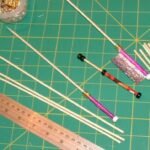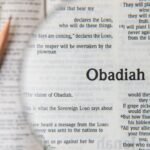The People of Bayan are a unique community known for their rich cultural heritage, vibrant traditions, and deep connection to their land. Located in [add specific region if known], Bayan is more than just a geographical area—it is a symbol of resilience, community, and tradition.
Historical Background
The history of the Bayan people stretches back hundreds of years, with their origins rooted in [specific historical events, if applicable]. Through time, the Bayan people have endured wars, migrations, and significant political changes. Despite these challenges, they have held fast to their traditions, evolving their culture while maintaining core values that define them.
Cultural Heritage and Traditions
The culture of the Bayan people is as diverse as it is captivating. They celebrate various festivals that reflect their deep connection to nature, community, and spirituality. These festivals often involve traditional music, dance, and storytelling, passed down from elders to the younger generations. Their artistic expressions, such as intricate weaving, pottery, and craftsmanship, also play a crucial role in defining Bayan culture.
Language is another pillar of the Bayan people’s heritage. Their language, often rich in proverbs and storytelling, serves as a vehicle for preserving history, passing down cultural lessons, and fostering community bonds.
Social Structure and Community Life
The social structure in Bayan is rooted in strong family ties and communal living. Families often work together in various occupations, such as farming or artisanal crafts, and elders play a significant role in guiding younger members of the community. The Bayan people have a clear system of social hierarchy, where respect for age and wisdom is paramount.
Community governance is typically handled through traditional councils, where elders or elected leaders settle disputes and make important decisions affecting the village. The people of Bayan value collaboration and harmony, believing that working together is key to preserving their way of life.
Economic Activities and Livelihood
Traditionally, the Bayan people have relied on farming and agriculture as their main source of livelihood. The fertile lands of Bayan have allowed them to cultivate a variety of crops, sustaining their community and enabling trade with neighboring regions. In addition to farming, many Bayan people are skilled in trade, artisanal crafts, and other forms of small-scale business.
However, modernization and urbanization have presented new challenges and opportunities. While some Bayan families continue to engage in traditional occupations, others have ventured into new industries or migrated to cities in search of better opportunities. This balance between preserving traditional livelihoods and adapting to modern economies remains a central theme in the community’s future.
Spiritual Beliefs and Practices
Spirituality is at the heart of the Bayan people’s daily lives. Religious rituals and ceremonies mark important events, from birth and marriage to harvest celebrations and rites of passage.
Ceremonial gatherings are held regularly to honor ancestors and seek blessings for a prosperous life. These events bring the community together, reinforcing their sense of unity and continuity across generations. In recent years, the influence of modern religions has blended with traditional beliefs, creating a unique spiritual landscape in Bayan.
Challenges Faced by the People of Bayan
Like many indigenous or traditional communities, the people of Bayan face numerous challenges in today’s rapidly changing world. Urbanization has led many young people to leave their villages in search of education and employment opportunities in cities, resulting in the gradual erosion of traditional knowledge and customs.
Environmental changes and economic pressures have also affected their agricultural practices, making it harder for families to sustain their livelihoods in the ways they once did.
The Future of the Bayan People
Despite these challenges, there is hope for the future of the Bayan people. Many community leaders and organizations are working tirelessly to preserve their cultural heritage. Youth programs aimed at teaching traditional crafts, storytelling, and language are being implemented to engage the younger generation and ensure that the community’s history is not lost.
Efforts are also being made to adapt to modern changes without sacrificing cultural identity. For instance, the Bayan people are exploring sustainable agricultural practices that combine traditional knowledge with modern techniques, allowing them to preserve the environment while ensuring economic viability.
Conclusion
The people of Bayan are a living testament to the power of tradition, resilience, and community. Their rich cultural heritage, grounded in centuries-old customs, has withstood the test of time. As they navigate the complexities of modernization, the Bayan people remain dedicated to preserving their way of life for future generations.
By understanding and supporting their efforts to retain their heritage, we can contribute to the survival of a vibrant, unique community that enriches the world with its culture, wisdom, and traditions.



